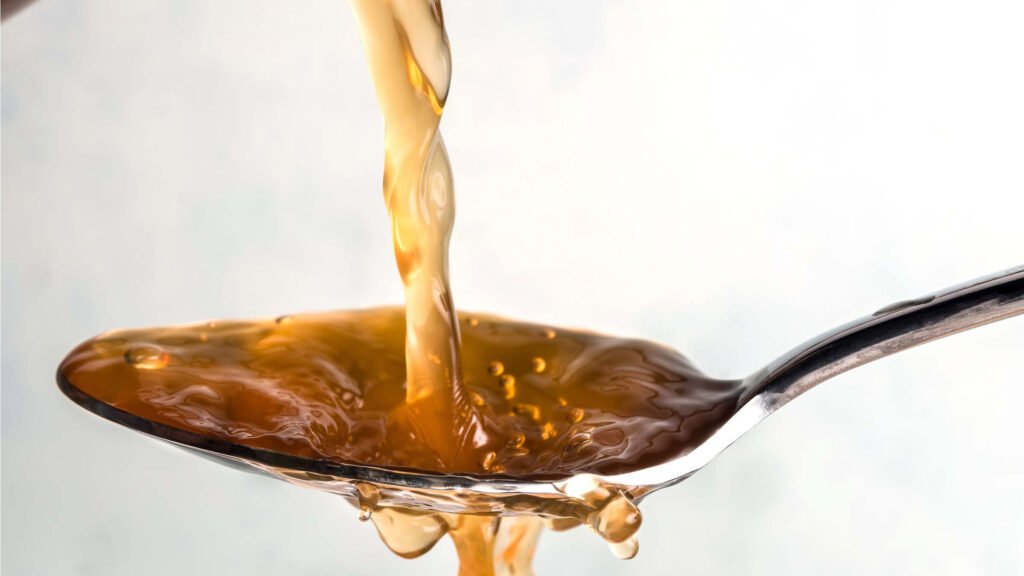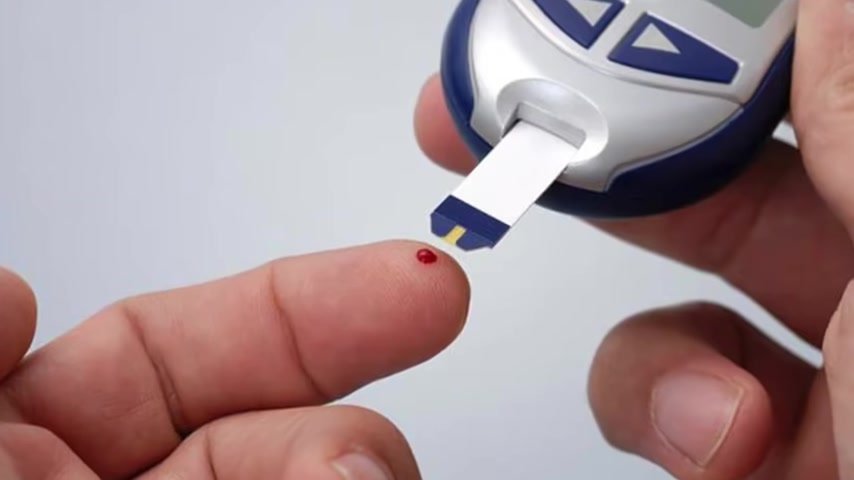Table of Contents
I’ve personally seen the incredible impact apple cider vinegar can have on blood sugar, and with millions of views on my previous ACV videos, it’s clear this topic resonates deeply. Today, we’re going beyond the basics to explore how apple cider vinegar for blood sugar can provide real, lasting results.
How to Balance Your Blood Sugar
Since there are so many people with blood sugar issues—pre-diabetic, diabetics, and people with insulin resistance—I wanted to cover this very important topic on apple cider vinegar.
If you’re not doing apple cider vinegar, you definitely want to consider adding that to what you eat, even if you’re not doing keto or intermittent fasting. There are other things that can improve your blood sugars beyond just lowering your carbs and fasting.
- Apple cider vinegar (ACV) is beneficial for blood sugar management.
- It’s helpful even without keto or intermittent fasting.
- Other methods can also help improve blood sugar levels.
Apple Cider Vinegar for Blood Sugar

Apparently, the acetic acid in apple cider vinegar gives a very potent anti-glycemic effect, even if you’re not doing keto. In other words, it can help buffer the food you eat to bring things lower on the glycemic index and help stabilize both blood sugars and insulin.
- Acetic acid in ACV provides an anti-glycemic effect.
- Helps lower the glycemic index of foods.
- Stabilizes blood sugars and insulin.
Now, check this out. I’m going to put all these studies down below; there are quite a few. When you add vinegar to your rice—let’s say you’re going to do sushi, right?
Which I’m not recommending eating rice, but if you do, you will drop the glycemic index of that rice by 35%, which is fascinating. If you add vinegar to your cooked potato while it cools down, maybe on a salad or something, you will reduce the glycemic index of that potato by 43%.
If you add vinegar to your bread—let’s say you eat some white bread—you’ll create a significant decrease in blood sugars and insulin. Again, I’m not recommending this, but I mean, this is fascinating.
- Vinegar lowers the glycemic index of rice by 35%.
- Reduces the glycemic index of potatoes by 43%.
- Decreases blood sugars and insulin when added to bread.

If you add vinegar to cereal or barley, of course, you’re not going to put vinegar on your cereal bar, but let’s say you had vinegar tablets, for example. You could probably add that to orange juice and drop your blood sugars and insulin. There were a couple of interesting studies.
One was consuming vinegar with a sandwich. I think it was actually in capsules. Vinegar capsules decreased the glycemic index by 30%. If you’re going to eat a salad, whether you add balsamic vinaigrette or apple cider vinegar as part of your salad dressing, you can decrease the glycemic index by 31%. This is interesting because it goes beyond just lowering your carbs and fasting.
- Vinegar tablets can help lower blood sugars and insulin.
- Vinegar capsules reduce the glycemic index of sandwiches by 30%.
- Adding vinegar to salad dressing decreases the glycemic index by 31%.
Anytime you lower your glucose, you’re going to decrease insulin, which will automatically reduce fat on your liver and help you lose some weight—maybe not a lot, but by lowering your blood sugars, you will contribute to weight loss. You will also reduce your hunger. Why? Because there’s less insulin, and you’ll have fewer cravings.
- Lowering glucose decreases insulin.
- Reduces fat on the liver.
- Contributes to weight loss.
- Decreases hunger and cravings.
What Kind of Apple Cider Vinegar Should I Take?

I’ve done a lot of topics on apple cider vinegar. In fact, One thing I want to mention about what type of apple cider vinegar to take: I would recommend Fairchild’s Organic Apple Cider Vinegar.
I have no affiliation, and I’m not getting any kickbacks, but most people use Bragg Organic Apple Cider Vinegar. What they don’t know is that somewhere along the line, Bragg started to dilute their apple cider vinegar. If you look at the back of the label, you’ll see “apple cider vinegar with water.
Fairchild’s is not only organic, but there’s no added water. They were the main supplier of Bragg’s apple cider vinegar. I don’t know if they still are, but they might be.
- Fairchild’s Organic Apple Cider Vinegar is recommended.
- Bragg’s apple cider vinegar is diluted with water.
- Fairchild’s is organic with no added water.
ACV for the Dawn Phenomenon

Whether you’re on keto or not, you want to add apple cider vinegar to your diet if you have a history of insulin resistance and have what’s called the dawn phenomenon—where your blood sugars are high even though you did not consume a lot of carbs the day before.
This is because the liver is making a lot more sugar. It’s called gluconeogenesis. People always want to know how to lower their blood sugar in the morning. Very simply, take two tablespoons of apple cider vinegar before bed. I wouldn’t take it just straight; I would put it in 8 to 10 ounces of water.
Two tablespoons of apple cider vinegar equal 10 grams. Take this before bed because what’s going to happen is you’ll wake up, and your blood sugars will start to go lower and lower.
- ACV helps with the dawn phenomenon.
- Take two tablespoons of ACV before bed.
- Mix ACV with 8 to 10 ounces of water.
Another recommendation is to start taking apple cider vinegar before your meal, again in about 8 to 12 ounces of water. Since you’re drinking something very acidic, even though it’s diluted in the water, you want to drink it through a straw so the apple cider vinegar is not exposed too much to your teeth.
- Take ACV before meals.
- Mix with 8 to 12 ounces of water.
- Drink through a straw to protect your teeth.
Things That Help Buffer Spikes in Blood Sugar!
There are other things that can also buffer your meal in terms of reducing the effect of this blood sugar situation. We just talked about vinegar, but you can also add fat and fiber to help lower this spike in blood sugar.
- Other buffers include fat and fiber.
Summary
- There are so many people with blood sugar issues. If you’re not already, you should consider adding apple cider vinegar (ACV) into your diet.
- There are things that can improve your blood sugar levels that go beyond keto and fasting, and apple cider vinegar is one of them.
- The acetic acid in apple cider vinegar gives a very potent anti-glycemic effect, even if you’re not doing keto. It can help buffer the food you eat to bring it lower on the glycemic index. This can help stabilize your blood sugar and insulin.
Any time you lower your glucose, you’re going to reduce insulin. Reducing insulin will help you:
• Decrease fat on your liver
• Lose weight
• Decrease hunger
• Decrease cravings
- As far as the best apple cider vinegar to take, I like Fairchild’s Organic Apple Cider Vinegar.
- If your blood sugar is high in the morning even though you didn’t consume a lot of carbs the day before, this is known as the dawn phenomenon. If you experience this issue, try taking two tablespoons of apple cider vinegar mixed into eight to twelve ounces of water before bed.
- You can also try taking apple cider vinegar before your meal. Because apple cider is very acidic, drink it through a straw so it’s not exposed to your teeth.
DATA
https://pubmed.ncbi.nlm.nih.gov/17712024
https://pubmed.ncbi.nlm.nih.gov/16034360
https://pubmed.ncbi.nlm.nih.gov/16015276
https://pubmed.ncbi.nlm.nih.gov/20068289
FAQ
How long does it take for apple cider vinegar to reduce blood sugar?
Apple cider vinegar (ACV) has been shown to have a modest effect on reducing blood sugar levels, particularly when consumed before meals. Studies suggest that taking 1-2 tablespoons of ACV diluted in water before eating can slow the rate of stomach emptying and reduce the breakdown of carbohydrates into glucose, leading to a lower blood sugar spike after the meal[1][3][4].
What is the bedtime ritual for blood sugar?
Maintaining stable blood sugar levels overnight is crucial for overall health and well-being. Here are some effective bedtime rituals that can help manage blood sugar:
- Consume a protein-rich snack: Eating a small snack containing protein, such as a handful of nuts or a hard-boiled egg, can help prevent blood sugar from dropping too low during the night[5].
- Engage in light exercise: Performing light exercises, such as a short walk or gentle stretching, can help lower blood sugar levels before bed[5].
- Practice stress management: Engaging in relaxation techniques, such as deep breathing, meditation, or yoga, can help reduce stress and promote better sleep, which is important for blood sugar regulation[5].
- Monitor blood sugar levels: Checking blood sugar levels before bed and recording the results can help identify patterns and trends, allowing for better management of blood sugar throughout the night[5].
- Maintain a consistent sleep schedule: Establishing a regular sleep routine and aiming for 7-9 hours of sleep per night can help optimize blood sugar control[5].
By incorporating these rituals into your nightly routine, you can help maintain healthy blood sugar levels and promote overall well-being.
Does apple cider vinegar before bed help blood sugar?
Yes, consuming apple cider vinegar (ACV) before bed may help manage blood sugar levels overnight. Here’s how:
- Slows gastric emptying: ACV has been shown to slow the rate at which food leaves the stomach, which can help prevent blood sugar spikes after meals[1][2].
- Reduces glucose production: ACV may inhibit the liver’s ability to produce glucose, leading to lower blood sugar levels[1][4].
- Improves insulin sensitivity: Some studies suggest that ACV can enhance insulin sensitivity, allowing the body to use insulin more effectively to regulate blood sugar[1][3].
- Prevents dawn phenomenon: The dawn phenomenon is a natural rise in blood sugar levels that occurs in the early morning hours. Consuming ACV before bed may help mitigate this effect[4].
To benefit from ACV before bed, dilute 1-2 tablespoons in water and drink it 30 minutes to an hour before bedtime[1][3][4]. However, it’s important to note that while ACV may help manage blood sugar, it should not replace standard diabetes treatments. Individuals with diabetes should consult with their healthcare provider before incorporating ACV into their management plan[4].
What to drink to lower blood sugar immediately?
While there is no magic drink that can instantly lower blood sugar levels, certain beverages may help manage blood sugar more effectively:
- Water: Staying hydrated by drinking water throughout the day can help regulate blood sugar levels[5].
- Unsweetened coffee or tea: Caffeinated beverages like coffee and tea may help improve insulin sensitivity and reduce blood sugar levels[5].
- Apple cider vinegar (ACV) drink: Mixing 1-2 tablespoons of ACV with water and consuming it before meals can help slow the absorption of carbohydrates and lower blood sugar spikes[1][2][3].
- Cinnamon tea: Cinnamon has been shown to have a positive effect on blood sugar regulation. Drinking cinnamon tea may help lower blood sugar levels[5].
- Herbal teas: Certain herbal teas, such as chamomile, green tea, and ginger tea, may have beneficial effects on blood sugar management[5].
While these drinks can be part of a healthy lifestyle for managing blood sugar, they should not be used as a substitute for standard diabetes treatments. Individuals with diabetes should consult with their healthcare provider to develop a comprehensive management plan tailored to their specific needs.
What is ideal blood sugar before bedtime?
The ideal blood sugar range before bedtime varies depending on the individual and their specific health conditions. However, here are some general guidelines for healthy blood sugar levels before bed:
- For individuals without diabetes: A blood sugar level between 90-150 mg/dL (5.0-8.3 mmol/L) is considered normal before bedtime[5].
- For individuals with type 1 diabetes: A blood sugar level between 90-150 mg/dL (5.0-8.3 mmol/L) is generally recommended before bed[5].
- For individuals with type 2 diabetes: A blood sugar level between 100-180 mg/dL (5.6-10.0 mmol/L) is often considered acceptable before bedtime[5].
It’s important to note that these ranges are general guidelines, and individual target ranges may vary based on factors such as age, duration of diabetes, and the presence of other health conditions. Healthcare providers may recommend slightly different target ranges based on the individual’s specific needs and treatment goals[5].
Regular monitoring of blood sugar levels, including before bedtime, is crucial for managing diabetes effectively. Individuals with diabetes should work closely with their healthcare provider to determine their optimal blood sugar targets and develop a personalized management plan.
Is it better to drink apple cider vinegar in the morning or at night?
The optimal time to consume apple cider vinegar (ACV) depends on the desired effect and the individual’s preferences. Here are some considerations for drinking ACV in the morning or at night:
Morning:
- Consuming ACV in the morning may help regulate blood sugar levels throughout the day[1][3].
- ACV may have a mild diuretic effect, which could be beneficial for starting the day[4].
- Some people find that drinking ACV in the morning helps with weight management by promoting a feeling of fullness[4].
Night:
- Drinking ACV before bed may help manage blood sugar levels overnight and prevent the dawn phenomenon (a natural rise in blood sugar levels in the early morning hours)[1][2][4].
- Consuming ACV at night can be part of a bedtime ritual for blood sugar management[5].
- For some individuals, drinking ACV before bed may help with digestion and prevent acid reflux[4].
Ultimately, the best time to drink ACV depends on the individual’s goals and preferences. Some people may find it beneficial to drink ACV both in the morning and at night. Regardless of the timing, it’s crucial to dilute ACV with water to minimize potential side effects, such as tooth enamel erosion or throat irritation[4].
What do you add to warm water to lower blood sugar?
Adding certain ingredients to warm water can help support healthy blood sugar levels. Here are some options:
- Apple cider vinegar (ACV): As mentioned earlier, ACV has been shown to help manage blood sugar levels. Mix 1-2 tablespoons of ACV in a glass of warm water and consume it before meals or at bedtime[1][2][3].
- Cinnamon: Cinnamon has been studied for its potential to improve insulin sensitivity and lower blood sugar levels. Add a teaspoon of ground cinnamon to your warm water[5].
- Lemon juice: Lemon juice may help slow the absorption of carbohydrates and promote healthy blood sugar levels. Squeeze half a lemon into your warm water[5].
- Ginger: Ginger has anti-inflammatory properties and may help regulate blood sugar. Grate a small piece of fresh ginger into your warm water or use ginger tea[5].
- Turmeric: Curcumin, the active compound in turmeric, has been studied for its potential to improve insulin sensitivity and reduce inflammation. Add a pinch of ground turmeric to your warm water[5].
Remember, while these ingredients may provide some benefits for blood sugar management, they should not replace standard diabetes treatments. Individuals with diabetes should consult with their healthcare provider before making significant changes to their diet or adding supplements to their routine.
How to reduce blood sugar level immediately
While there is no immediate solution to dramatically lower blood sugar levels, certain strategies can help manage them more effectively:
- Take prescribed medications: If you have diabetes, follow your healthcare provider’s instructions for taking insulin or other medications to control blood sugar levels[5].
- Engage in physical activity: Light to moderate exercise, such as a brisk walk, can help lower blood sugar levels by increasing insulin sensitivity and promoting glucose uptake by muscles[5].
- Drink water: Staying hydrated by drinking water throughout the day can help dilute blood sugar and promote its excretion through urine[5].
- Avoid sugary foods and drinks: Steer clear of foods and beverages high in added sugars, as they can cause rapid spikes in blood sugar levels[5].
- Monitor blood sugar levels: Regularly checking your blood sugar levels can help you identify patterns and trends, allowing you to make informed decisions about managing your health[5].
While these strategies can help manage blood sugar levels, it’s important to note that they may not provide immediate results. Individuals with diabetes should work closely with their healthcare provider to develop a comprehensive management plan tailored to their specific needs.
ACV before bed blood sugar
Consuming apple cider vinegar (ACV) before bed may help manage blood sugar levels overnight. Here’s how:
- Slows gastric emptying: ACV has been shown to slow the rate at which food leaves the stomach, which can help prevent blood sugar spikes after meals[1][2].
- Reduces glucose production: ACV may inhibit the liver’s ability to produce glucose, leading to lower blood sugar levels[1][4].
- Improves insulin sensitivity: Some studies suggest that ACV can enhance insulin sensitivity, allowing the body to use insulin more effectively to regulate blood sugar[1][3].
- Prevents dawn phenomenon: The dawn phenomenon is a natural rise in blood sugar levels that occurs in the early morning hours. Consuming ACV before bed may help mitigate this effect[4].
To benefit from ACV before bed, dilute 1-2 tablespoons in water and drink it 30 minutes to an hour before bedtime[1][3][4]. However, it’s important to note that while ACV may help manage blood sugar, it should not replace standard diabetes treatments. Individuals with diabetes should consult with their healthcare provider before incorporating ACV into their management plan[4].
Does drinking hot water reduce blood sugar?
There is no direct evidence that drinking hot water alone can reduce blood sugar levels. However, incorporating hot water into a healthy lifestyle may provide some indirect benefits for blood sugar management:
- Promotes hydration: Drinking hot water throughout the day can help keep you hydrated, which is important for overall health and may have a mild diuretic effect[5].
- Facilitates weight management: Replacing sugary drinks with hot water may contribute to weight loss, which can improve insulin sensitivity and reduce the risk of type 2 diabetes[5].
- Supports relaxation: Sipping hot water can be a relaxing ritual, which may help reduce stress levels. Chronic stress has been linked to impaired glucose metabolism and insulin resistance[5].
- Enhances digestion: Some people find that drinking hot water can aid digestion and prevent constipation, which may have a positive impact on overall health[5].
While hot water alone may not directly lower blood sugar levels, incorporating it into a balanced diet and active lifestyle can contribute to better overall health and potentially support blood sugar management. However, individuals with diabetes should consult with their healthcare provider for personalized guidance on managing their condition.




